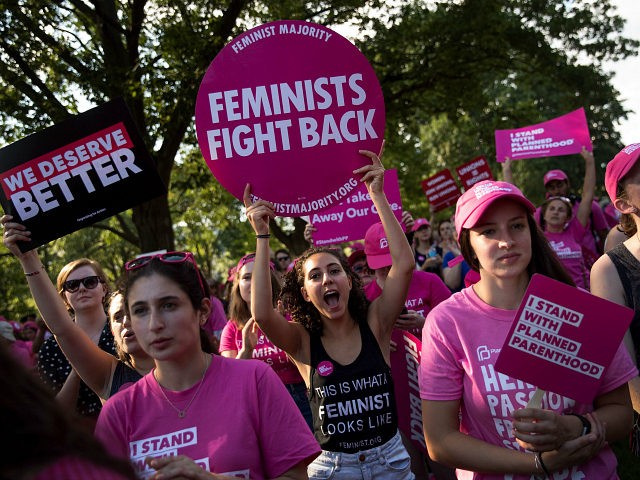A research paper concluding that working with female mentors might hurt young women’s careers in the sciences has been retracted after fierce criticism from “group email threads” and on social media. The academic journal that published the paper apologized for “any unintended harm derived from the publication of this paper.”
A study published in the peer-reviewed journal Nature Communications was retracted following backlash from people who were uncomfortable with the paper’s findings, according to a report by Inside Higher Ed.
The research paper studied a variety of dynamics within three million mentor-mentee research pairings, including the “possibility that opposite-gender mentorship may actually increase the impact of women who pursue a scientific career,” reported Inside Higher Ed.
The authors — which studied the disciplines of biology, chemistry, computer science, economics, engineering, geology, materials science, medicine, physics, and psychology — wrote that their study “suggests that female protégés who remain in academia reap more benefits when mentored by males rather than equally-impactful females.”
“Our findings also suggest that mentors benefit more when working with male protégés rather than working with comparable female protégés, especially if the mentor is female,” the authors add.
The study created a firestorm of criticism. “Let me be blunt: for the good of the global scientific community and for the reputation of Nature Communications, you must retract this paper,” wrote Leslie Vosshall, an investigator at Howard Hughes Medical Institute and Robin Chemers Neustein Professor at Rockefeller University, in an open letter to the editor-in-chief of Nature Communications.
Open letter to the Editor-in-Chief of @NatureComms about the AlShebli paper, which claims that training with #WomenInSTEM damages the careers of young scientists pic.twitter.com/NvuBK3Z5T6
— Leslie Vosshall PhD (@pollyp1) November 19, 2020
In her letter, Vosshall went on to say that people on Twitter agree that the research paper is “deeply methodologically flawed.”
“The general consensus among hundreds of colleagues who have read and commented on this paper in large group email threads and on Twitter is that it is deeply methodologically flawed, and with the potential to inflict serious harm on the global scientific community,” wrote Vosshall.
“I find it deeply discouraging that this message — avoid a female mentor or your career will suffer — is being amplified by your journal,” she added.
A month later, the authors of the article on the drawbacks of female mentorship in science retracted the paper. The paper was authored by Bedoor AlShebli, assistant professor of computational social science at New York University’s Abu Dhabi campus, and her colleagues, Talal Rahwan, and Kinga Makovi.
The authors of the research paper say that while they “believe that all the key findings of the paper with regards to co-authorship between junior and senior researchers are still valid,” they have nonetheless decided to retract the article.
“We are an interdisciplinary team of scientists with an unwavering commitment to gender equity, and a dedication to scientific integrity,” the authors wrote in a retraction notice last week.
The notice goes on to explain that the paper is being retracted “in response to criticisms about the assumptions underpinning the Article in terms of the identification of mentorship relationships and the measure of mentorship quality, challenging the interpretation of the conclusions.”
“These criticisms were raised by readers and confirmed by three experts post-publication as part of a journal-led investigation,” the notice adds.
“The three independent experts commented on the validity of the approaches and the soundness of the interpretation in the article,” the authors explain. “They supported previous criticisms in relation to the use of co-authorship as a measure of mentorship. Thus, any conclusions that might be drawn on biases in citations in the context of co-authorship cannot be extended to informal academic mentorship.”
A separate editorial published by Nature Communications‘ editors also insisted that the retraction was not an attempt to censor inconvenient truths.
“Simply being uncomfortable with the conclusions of a published paper, would and should not lead to retraction on this basis alone,” the editors wrote. “If the research question is important, and the conclusions sound and valid, however controversial, there can be merit in sharing them with the research community so that a debate can ensue and a range of possible solutions be proposed.”
“In this case,” the editors added, “the conclusions turned out not to be supported, and we apologise to the research community for any unintended harm derived from the publication of this paper.”
You can follow Alana Mastrangelo on Facebook and Twitter at @ARmastrangelo, on Parler at @alana, and on Instagram.

COMMENTS
Please let us know if you're having issues with commenting.